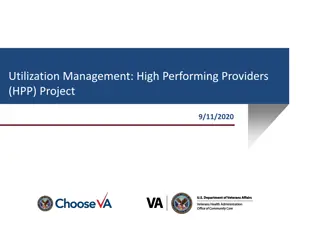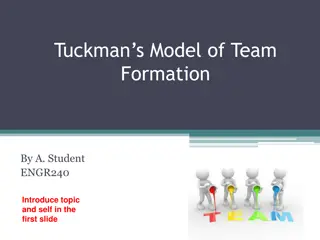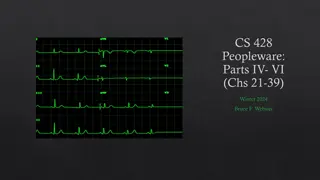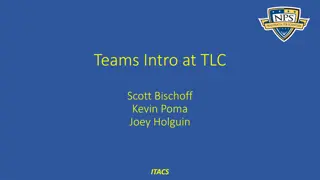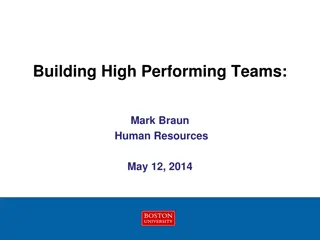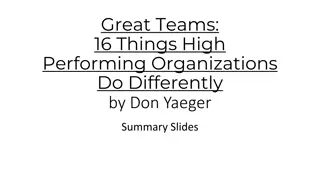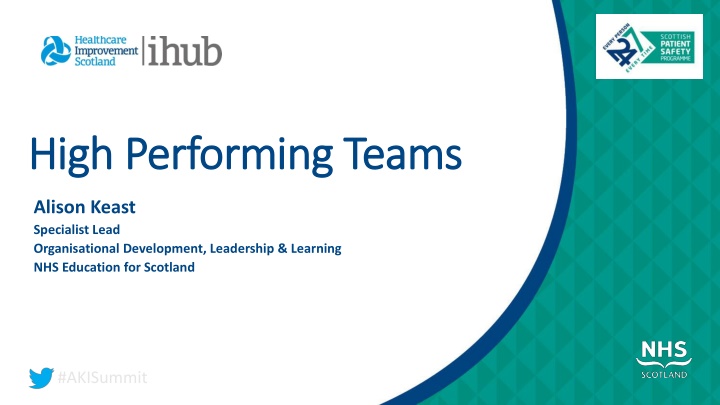
Achieving High Performance in Teams: Key Insights and Strategies
Learn essential principles for building high-performing teams, including characteristics, examples, and actionable steps to enhance team effectiveness. Explore common dysfunctions that hinder team performance and discover sources of resilience. Dive into strategies to strengthen team cohesion, set clear objectives, and foster accountability.
Download Presentation

Please find below an Image/Link to download the presentation.
The content on the website is provided AS IS for your information and personal use only. It may not be sold, licensed, or shared on other websites without obtaining consent from the author. If you encounter any issues during the download, it is possible that the publisher has removed the file from their server.
You are allowed to download the files provided on this website for personal or commercial use, subject to the condition that they are used lawfully. All files are the property of their respective owners.
The content on the website is provided AS IS for your information and personal use only. It may not be sold, licensed, or shared on other websites without obtaining consent from the author.
E N D
Presentation Transcript
High Performing Teams High Performing Teams Getting the Basics Right Alison Keast Specialist Lead Organisational Development, Leadership & Learning NHS Education for Scotland #AKISummit
What is this session about? What is this session about? #AKISummit The characteristics commonly seen in high performing teams, and the dysfunctions which undermine them. Identify sources of resilience for you and your collaborative team.
Examples of high performing teams Examples of high performing teams #AKISummit
The Apple Pie analogy The Apple Pie analogy #AKISummit 1. Do you have clear objectives? 2. Are there interdependencies between the roles that require you to work together? 3. Do you meet regularly to review team performance?
Katzenbach Katzenbach and Smith definition and Smith definition #AKISummit A team is a small number of people with complementary skills who are committed to a common purpose, a set of performance goals, and an approach for which they hold themselves mutually accountable.
5 Characteristics of High Performing Teams 5 Characteristics of High Performing Teams #AKISummit J.R. Katzenbach and D.K. Smith
Activity Activity #AKISummit Individual Think about your collaborative team. Rate the team against each of the five characteristics using the following scale: 3 this is the key strength for this team 2 this characteristic is present but could develop further 1 this is an area of weakness and needs focussed attention Discuss at your tables What actions can you take to support the team? To further develop a key strength To improve an area of weakness
Look at this another way Look at this another way #AKISummit What stops teams from performing to their highest potential?
5 Dysfunctions of a Team 5 Dysfunctions of a Team #AKISummit Inattention to RESULTS
5 Dysfunctions of a Team 5 Dysfunctions of a Team #AKISummit Inattention to RESULTS Courage to be VULNERABLE
5 Capabilities of Resilience 5 Capabilities of Resilience #AKISummit Perspective Emotional Intelligence Connection Managing physical energy Purpose, Values and Strengths Roffey Park Institute (2014)
5 Capabilities of Resilience 5 Capabilities of Resilience #AKISummit Individually Which capability do you feel MOST resilient in? Which capability do you feel LEAST resilient in? What action will you take to support yourself now?
Systems Thinking for Everyday Work Systems Thinking for Everyday Work #AKISummit
Systems Thinking for Everyday Work Systems Thinking for Everyday Work #AKISummit Discuss your systems context and culture What are you particularly good at as a collaborative? What could you spend more time developing as a collaborative? Decide on at least 1 clear action.


